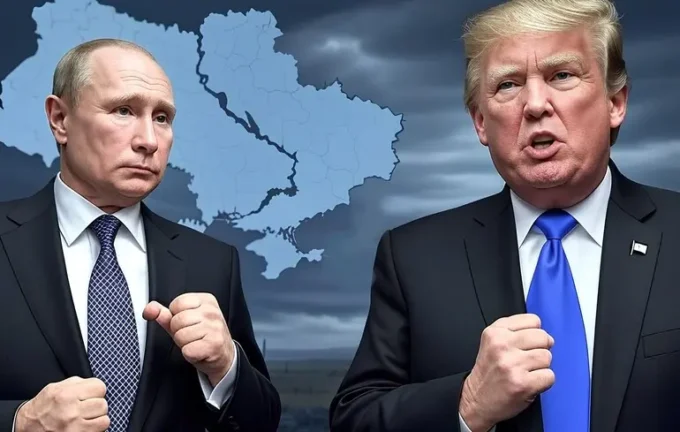Tensions and Strategic Maneuvers: How the US and Russia Respond to the New Geopolitical Landscape

In recent weeks, global leaders have found themselves at the epicenter of a new phase of geopolitical rivalry between the United States and Russia.
U.S.
President Donald Trump made a provocative announcement that immediately stirred mixed reactions in both Washington and Moscow.
On one hand, his statements regarding potential tariffs and increased pressure on countries supporting Russia, including China and India, signaled a new diplomatic strategy.
On the other hand, Politico highlights that in a rather unconventional manner, Trump’s speech during a press conference in the Oval Office primarily delegated the summarizing remarks to NATO Secretary General Mark Rutte, allowing the latter to outline the new U.S.
policy while Trump occasionally chimed in.
Despite this, Kyiv and Western capitals welcomed the fact that Trump did not abandon support for Ukraine, and his tone towards Putin appeared to soften – a shift noted by Politico Europe’s opinion editor, Jamie Dettmer.
However, Moscow maintained a calm façade.
Russian analysts interpret Trump’s tough tariffs as a “blank check” for escalating operations in Ukraine, with the Russian stock market reacting calmly, rising by 2.7% after the announcement.
Experts like political scientist Tatyana Stanova and military analyst Yuri Fedorov agree that the core of Russia’s concern is the imminent threat of secondary sanctions, legislative moves in the U.S.
Congress, and the imminent delivery of long-range missiles to Ukraine.
They see these developments as an effective green light for continued aerial strikes, especially since Trump does not seem prepared for a serious confrontation with Russia.
As Jamie Dettmer contends, this gives Moscow the opportunity to continue sowing chaos and bloodshed throughout the summer.
The question remains whether Trump, in the coming months, will take a tougher stance or whether Putin will agree to a ceasefire that might lead to peaceful settlement.
Fiona Hill, a former Trump advisor on Russia, warns that Trump’s attitude is influenced by personal admiration for Putin, who allegedly aims to weaken Ukraine rather than resolve the conflict.
Hill notes that Putin’s reluctance to cease hostilities stems from a desire to keep Ukraine weakened, understanding that this serves Moscow’s strategic interests.
Experts warn that prolonging the war remains vital for Putin, as a sudden end could spark internal competition for diminishing resources.
Former Reuters reports indicate that Putin remains unconcerned about Trump, believing his military and economic strength is sufficient to withstand additional sanctions and that territorial claims could expand as Russian forces advance.
In summary, the situation remains tense and unpredictable, demanding careful monitoring from Ukraine and its allies to respond effectively to the evolving geopolitical landscape.

